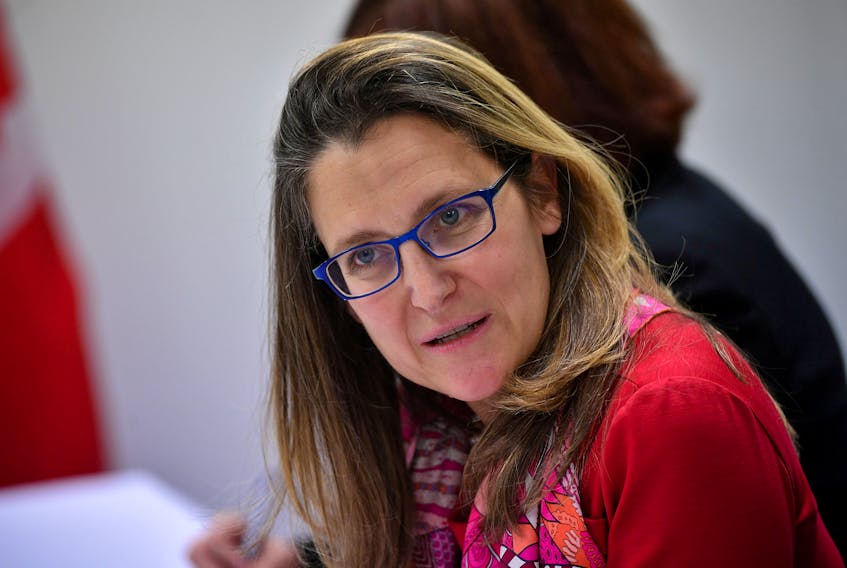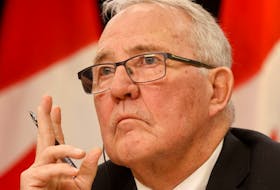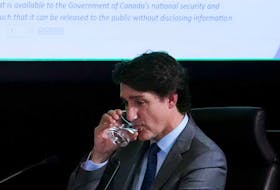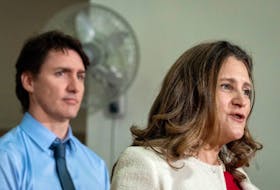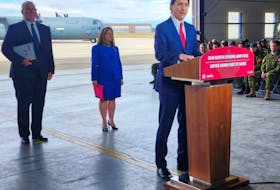Well, congratulations are in order for newly minted Intergovernmental Affairs Minister Chrystia Freeland — as she moves on from the Global Affairs portfolio. The bad news for her, however, is that she’s now the new Intergovernmental Affairs Minister.
She’s going to need all of her considerable brain power and negotiating skills — and then some — to deal with a number of recalcitrant provincial governments. This is where her experience and expertise in dealing with international politics, especially Canada’s relationship with Donald Trump’s America, will definitely come in handy. But will it be enough?
A handful of provincial premiers, seemingly borrowing a page from the sovereigntist handbook in Quebec, have been speaking publicly (and loudly) about pursuing a suite of policy prescriptions to bolster their autonomy and independence. Now, they aren’t exactly talking about outright statehood (notwithstanding the strange calls for “Wexit” emanating from Jason Kenney’s Alberta) or the dismantling of Canada.
Still, they are proposing that their respective provinces carve out a larger role for themselves on the international stage. Translation: enhancing the powers and responsibilities of the provinces at the expense of the federal government and, potentially at least, the overall unity of the federation.
The Alberta government is kicking around the idea of creating a provincial body to collect its own income taxes (instead of Revenue Canada), to opt out of the Canada Pension Plan and to replace the federal RCMP with Alberta’s own police force. Kenney has also spoken about his province establishing a greater international personality via enhanced participation in matters of global trade and investment. According to the parameters of his so-called Fair Deal Panel, members will look into “seeking Alberta representation in treaty negotiations that affect Alberta’s interests.”
Not to be outdone, Premier Scott Moe of Saskatchewan has jumped aboard the good ship Autonomy. “We’ll be considering a number of different options where Saskatchewan has an opportunity to exert our provincial autonomy. We’re going to think very seriously about doing that,” he said. One of the things that he mentioned was the distinct possibility of opening up his own foreign trade promotion offices/missions.
Who’s next? Will New Brunswick Premier Blaine Higgs seek to boost his province’s international activities by establishing satellite trade offices overseas as well? Will tiny Prince Edward Island soon be angling for a separate seat at the United Nations in New York? Where will it end?
The main problem with provincial governments sticking their noses into world politics is that they will necessarily throw a wrench into things. What I mean here is that assembling a country’s foreign policy is difficult enough without having to construct a consensus among 10 provincial leaders — all pressing their own narrow interests. Where does that leave the broader national interest?
Moreover, it is imperative for Canada to speak with one voice (and not 10) on the international stage and within multilateral fora. Other countries need to know that dealing with Ottawa on delicate foreign policy matters (such as negotiating global agreements or even bilateral pacts) will not require the consent of provincial governments later on. Indeed, foreign leaders will only trust us if they feel reassured that Ottawa’s word is the final word.
For all intents and purposes, it will be practically impossible for the federal government to negotiate an international trade pact if it has to first get the approval of every provincial premier. Complex trade negotiations inevitably require painful tradeoffs in order to secure a wider deal that will benefit the country overall. But that would be extremely difficult to accomplish if every premier wanted to protect his own provincial interests and thus block the necessary give and take.
The other major fear is the real possibility that a country like the United States could seek to undermine Canada’s national interest (or a more favourable bilateral arrangement) by employing a divide-and-conquer strategy involving the provinces. By turning them against Ottawa or even one another, Washington would be in a stronger bargaining position to out-negotiate Canada and secure a better deal for itself.
Needless to say, it’s going to take a tremendous amount of self-control, patience and forbearance for Freeland to handle this provincial push to engage in matters of Canada’s external relations. The one thing that we’ve learned lately is that if Ottawa gives the provinces an inch (such as opening up the foreign policy window just a crack), they’ll try to take a mile (and open the window as far as possible).
It won’t make her popular, but the fact of the matter is that Freeland is going to have to learn to say no firmly to the provinces on the question of greater provincial engagement in international affairs. Failure to do so will only further complicate the formulation and implementation of Canadian foreign policy.
More important, expanded provincial power in this area will, over time, pose a serious challenge to national unity. And as the federal cabinet minister chiefly responsible for managing relations with the provinces, Freeland has to stop that from happening.
Peter McKenna is professor of political science at the University of Prince Edward Island in Charlottetown.

